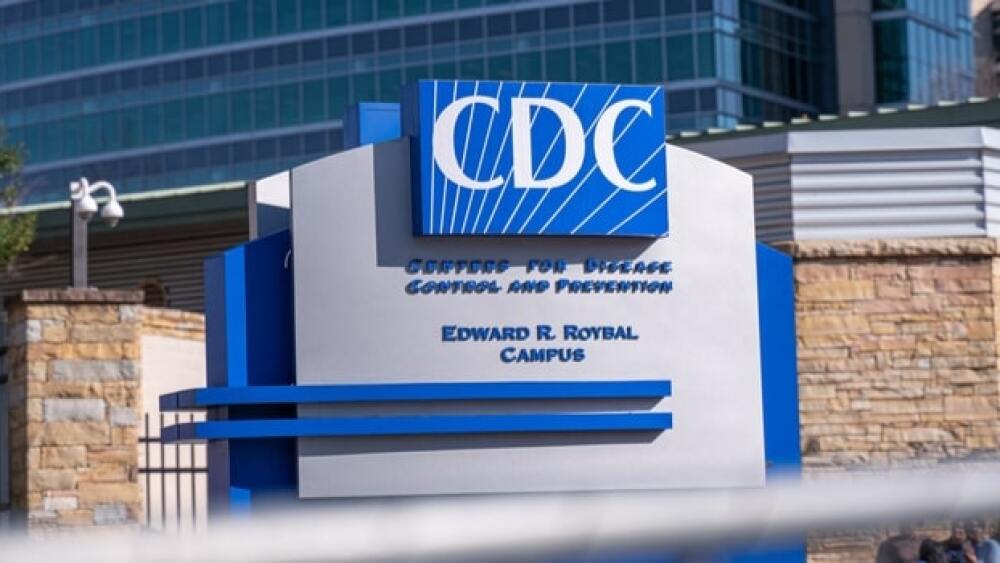CDC director Dr. Rochelle Walensky announced plans to launch a “reset” of the agency amid criticism over its handling of the COVID-19 pandemic and other public health threats.
Pavel Metluk/Shutterstock
CDC director Dr. Rochelle Walensky, M.D. announced plans to launch a “reset” of the agency amid intense criticism over its handling of the COVID-19 pandemic and other public health threats.
“I feel like it’s my responsibility to lead this agency to a better place after a really challenging three years,” Walensky told The Associated Press.
It’s not unusual for each CDC director to reorganize the agency. Walensky’s decision comes in the wake of the worst public health crisis in a century.
The CDC is headquartered in Atlanta with an annual budget of $12 billion and more than 11,000 employees. Even before the COVID-19 pandemic, common criticisms have been its slowness in responding to fast-moving crises and its tendency to focus on data collection and analysis over fast action. It has also come under significant criticism during the COVID-19 pandemic for ineffective and inconsistent messaging.
“Public health experts have called out CDC for confusing isolation and quarantine guidance and asked the agency to communicate more often and more clearly,” an NPR story published in January read.
CDC Allegedly “Bungled” Testing
And the agency was widely criticized early in the pandemic over what an article published in Science called its “bungling” of testing for the disease. The World Health Organization had shipped test kits to 57 countries, and China had five commercial tests on the market one month earlier and was able to run 1.6 million tests a week. At the same time, the CDC had performed only 459 tests since the pandemic began. The test it designed to be used by state and local labs had faulty reagents and had to be recalled and redesigned - instead of using kits offered by other countries or allowing U.S.-based laboratories to develop their own test kits, a common practice.
“We saw during COVID that CDC’s structures, frankly, weren’t designed to take in information, digest it and disseminate it to the public at the speed necessary,” Jason Schwartz, a health policy researcher at the Yale School of Public Health told NPR.
Walensky called for an in-depth review of the CDC in April, which is behind her current plan. The restructuring still needs to be approved by the secretary of the Department of Health and Human Services, to which the CDC belongs. The CDC hopes to have the full package finalized, approved and launched early in 2023.
A New Executive Council and Increased Preprints
Although still in the planning stages, Walensky’s proposals include increased use of preprint scientific publications instead of waiting for peer review and publication in the CDC’s own Morbidity and Mortality Weekly Report; modifying the length of time agency leaders devote to outbreak responses to a minimum of six months, which is to address a turnover problem that led to knowledge gaps and hurt communications; and a new executive council to set strategy and priorities.
It also calls for appointing Mary Wakefield, Ph.D. as senior counselor to implement the changes. Wakefield led the Health Resources and Services Administration in the Obama administration and was acting Deputy Secretary of HHS for two years.
In her announcement, Walensky said, “For 75 years, CDC and public health have been preparing for COVID-19, and in our big moment, our performance did not reliably meet expectations. As a long-time admirer of this agency and a champion for public health, I want us all to do better, and it starts with CDC leading the way.
More recently, the CDC has faced criticism over how it is handling the monkeypox outbreak in the U.S. The agency, HHS and the Biden administration, in general, have been slow to meet the growing demand for testing, vaccines and treatments. Criticisms have included that the agency did not recognize how the virus was spreading differently and more aggressively than in previous outbreaks and running the risk of spreading much faster than expected.
For example, in May, Dr. Anne Zink, M.D., chief medical officer for Alaska, held a Zoom call with CDC officials about monkeypox. She demanded clearer direction from the CDC, noting, “We need to move quickly. You know the data on this best. It would be very helpful to have clear direction from you all,” according to The Washington Post.
Dr. Scott Gottlieb, M.D., former commissioner of the FDA, wrote in The New York Times that the CDC’s response to monkeypox was similar to its failures with COVID-19. “Our country’s response to monkeypox has been plagued by the same shortcoming we had with COVID-19,"Now if monkeypox gains a permanent foothold in the United States and becomes an endemic virus that joints our circulating repertoire of pathogens, it will be one of the worst public health failures in modern times not only because of the pain and peril of the disease but also because it was so avoidable.”





